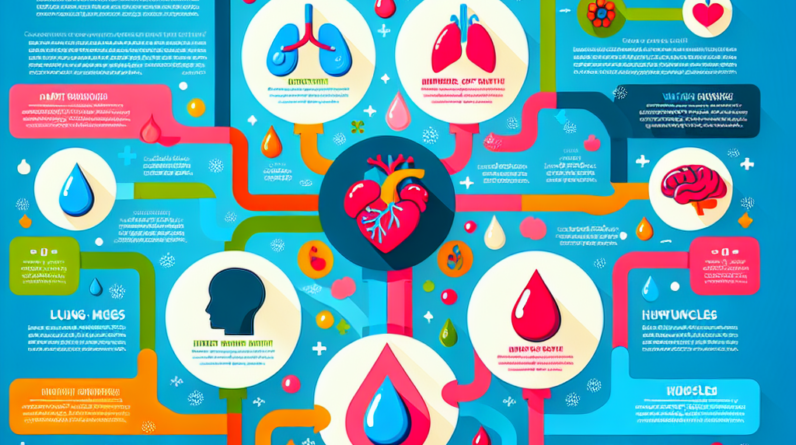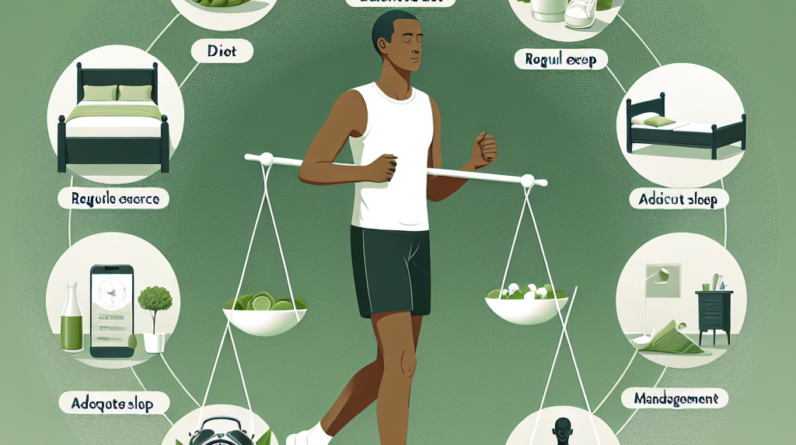
Improved Overall Health
Better Nutrition
When I started my journey with whole foods, the first change I noticed was in my overall nutrition. Whole foods are packed with vitamins, minerals, and other nutrients that our bodies crave. These nutrient-dense foods are less processed and contain more beneficial substances than their counterparts. I found myself feeling more energized and ready to tackle my day.
Get a Huge Discount and Bonus! Try for 90 Days Risk Free
Switching to a whole food diet has also helped me better understand food labels. I became more aware of what I was putting into my body. Instead of just relying on the claims on packages, I learned to look for items that had few ingredients and preferably things I recognized. This simple shift has made such a significant difference in how I feel overall.
Additionally, I realized that my cravings changed as well. With nourishing foods entering my diet, I found myself wanting more wholesome options instead of sugary snacks, which was a game-changer for my health journey.
Weight Management
Let’s face it, managing weight can be a struggle. However, something about committing to a whole food diet has made this journey much more enjoyable for me. I noticed that when I focused on whole foods, I wasn’t just cutting calories; I was filling my plate with wholesome, satisfying meals.
Whole foods tend to be lower in calories yet high in volume. This means I can eat a hearty portion without feeling guilty. Whether it’s a big salad, a bowl of quinoa, or some roasted veggies, it feels fulfilling and keeps me satiated longer. Hello, second breakfasts!
Plus, my relationship with food has improved. Instead of seeing it just as a way to fuel up, I now appreciate the flavors and textures of natural foods, which encourages me to whip up more meals at home rather than grabbing unhealthy fast food on the go.
Digestive Health
I can’t stress enough how great my digestion has become since switching to a whole food diet. With all that fiber from fruits, vegetables, whole grains, and legumes, my digestive system is like a well-oiled machine now. No more bloating or discomfort, which used to be a frequent issue for me.
And let’s not forget about gut health! By eating more whole foods, I was more mindful of my probiotic intake, incorporating fermented foods like sauerkraut, yogurt, or kimchi, which has done wonders for my overall gut flora. Your gut’s health can truly affect everything from your immune system to your mood, so this change was a big win for me.
Plus, I’ve found that cooking at home with whole foods gives me a better idea of what I’m eating, reducing the risk of unwanted additives and chemicals that can sometimes cause digestive issues. It’s all about being aware of what you consume!
Get a Huge Discount and Bonus! Try for 90 Days Risk Free
Increased Energy Levels
Stable Blood Sugar
Initially, I didn’t realize the impact my food choices had on my energy levels until I switched to whole foods. When I consumed refined sugars and processed foods, my energy levels would spike and crash. Since embracing whole foods, my blood sugar feels so much more stable. I find that I have consistent energy throughout the day, which is amazing!
Whole foods break down slowly in the body, providing a more stable source of energy. Foods like sweet potatoes, oats, and beans have become staples in my diet, allowing me to fuel my workouts and busy days without that dreaded afternoon slump.
Plus, fewer mood swings! It’s hard to focus or be productive if my sugar levels are bouncing all over the place. A balanced diet centered around whole foods keeps my mood and energy in check.
Natural Mood Enhancer
The link between nutrition and mental health is something that really struck me during this whole food adventure. Incorporating more whole foods into my diet has been an incredible boost for my mood. I’ve read that foods rich in omega-3 fatty acids, vitamins, and minerals can positively impact mental well-being, and I’m living proof of that.
Need a Serious Energy BOOST? Huge Discount Try for 90 Days Risk Free
I’ve noticed that meals loaded with nutrients not only help me physically but mentally as well. After a hearty meal filled with leafy greens and healthy fats, I often feel more relaxed and focused. It’s fascinating how the right foods can lift our spirits.
This newfound state of mind has inspired me to keep exploring and experimenting with different foods and recipes — it feels like an adventure discovering new ingredients that can keep my mood elevated!
Improved Sleep Quality
Can we talk about how my sleep has transformed since switching to a whole food diet? It’s been a revelation! I began to notice that the foods I ate during the day significantly influenced my nighttime rest. Consuming dense, nutrient-rich foods helped me fall asleep faster and wake up refreshed.
I’ve been mindful of my pre-sleep snacks too—avoiding heavy, sugary, or caffeinated options, and instead opting for calming foods like bananas or oatmeal before bed. These small changes work wonders! Less tossing and turning, more dreaming.
Ultimately, good sleep feeds back into better energy, mood, and overall health. It creates a wonderful cycle. Becoming aware of food’s power in this respect has truly changed the way I view my meals.
Enhanced Mental Clarity
Focus and Concentration
With my transition to whole foods, my mental clarity skyrocketed. In a world full of distractions, keeping my focus isn’t always easy, but a whole food diet has provided me with the building blocks for sharper concentration. Fewer processed foods and more nutrient-rich options have led to clearer thoughts and a more productive me!
Whole grains, healthy fats, and plenty of fruits and veggies have become staples in my diet. Each choice fuels my brain and keeps it operating at its best. I often find that I can dive into my work, studies, or favorite hobby without frequently losing my train of thought.
I even pay closer attention during conversations. It’s almost magical how the right foods can create this level of connection to my mental state, enabling me to be more present and engaged.
Good Health Solution is Easier Than Most People Think!
Take a Look for Yourself!
Sharper Memory
Something I didn’t expect from my whole food diet was how it positively affected my memory. Research suggests that foods rich in antioxidants and omega-3 fatty acids can bolster cognitive function and memory retention, and I’m seeing these effects personally!
Since I started integrating blueberries, avocados, and fatty fish into my meals, I feel more on top of my game mentally. It’s heartening to think that with each bite I take, I’m potentially boosting my brain power and solidifying my memory.
And honestly, who doesn’t want a better memory? It’s a thrilling bonus that came along with my whole food journey, making me even more passionate about what I eat daily.
Long-Term Brain Health
This journey isn’t just about immediate benefits; I’ve also started thinking about my future and brain health extending beyond just today. It dawned on me that what I consume now can impact my cognitive health down the road. Incorporating whole foods has provided a solid foundation for long-term wellness.
Powerful nutrients found in whole foods are linked to reduced risks of cognitive decline in later years. I feel proactive, knowing I’m making choices today that will benefit my brain as I age. It’s empowering!
I’m committed to sharing this knowledge with friends and family too. There’s something rewarding about inspiring others to nourish their brains through the foods they choose to eat. After all, knowledge is most powerful when shared!
Stronger Immune System
Natural Defense Boost
One of the most significant benefits of adopting a whole food diet is realizing how it has empowered my immune system. Packing my plate with colorful fruits and veggies has helped reinforce my body’s defenses naturally. Foods rich in vitamins C and A, like spinach and citrus, have become allies in promoting a robust immune response.
I also got into the habit of listening to my body. If I felt a bit run down, I would whip up a hearty veggie soup or smoothie, crammed with all the good stuff. This change has kept me healthier and happier, especially during flu seasons!
I think of whole foods as my personal army protecting me from illnesses. When it comes down to it, who wouldn’t want an armed force made up of fruits, veggies, and whole grains at our guard?
Reduced Inflammation
Along my journey, I noticed something else — my inflammation levels dropped significantly! Certain foods, like processed snacks and sugary treats, triggered inflammation for me. Making the switch to whole foods has diminished those uncomfortable feelings. It feels like a weight has been lifted!
Now, I focus on foods with natural anti-inflammatory properties, like berries, nuts, and leafy greens. I love how I can actively fight inflammation by making mindful choices at mealtime. It’s like a wellness hack that I’ve unlocked, and I want everyone to know about it.
Being inflammation-free contributes to overall health, allowing me to enjoy life to the fullest — no aches getting in the way of my adventures!
Boosted Recovery Time
As an active person, I can’t stress enough how a whole food diet has improved my recovery time. Strong nourishment means better muscle recovery! After investing energy into workouts or long walks, I need my body to bounce back. Thankfully, my whole food choices are rich in proteins and essential nutrients that help me restore.
Every time I choose to refuel with lean proteins, whole grains, and a good dose of veggies, I’m actively supporting my body’s recovery process. It’s pretty neat to see how blending delicious foods like chickpeas, quinoa, and seasonal veggies leads to shorter recovery periods.
This diet doesn’t just transform our food choices; it enhances our overall lifestyle. Whether hitting the gym or just enjoying an active day out, I’ve got the energy and recovery on my side!
FAQs
1. What are whole foods?
Whole foods are those that are minimally processed and still resemble their natural state. Think fresh fruits, vegetables, whole grains, nuts, seeds, and legumes. They generally don’t contain added sugars and preservatives found in packaged items.
2. How does a whole food diet help with weight management?
A whole food diet tends to be low in added sugars and unhealthy fats while providing high fiber content. This allows you to feel satisfied without the excess calories, making it easier to maintain a healthy weight.
3. Can whole foods improve mental clarity?
Absolutely! Whole foods are nutrient-dense and provide your brain with the vitamins and minerals it needs to function optimally, improving focus, memory, and overall mental health.
4. What are some quick whole food meal ideas?
Some easy ideas include a hearty vegetable soup, quinoa with roasted veggies, smoothies filled with fresh fruits and spinach, or whole-grain wraps packed with tons of greens and lean protein.
5. How can I get started with a whole food diet?
Start by slowly replacing processed foods with whole foods. Gradually incorporate more fruits, veggies, whole grains, and legumes into your meals. Explore new recipes and enjoy the journey toward healthier eating!








